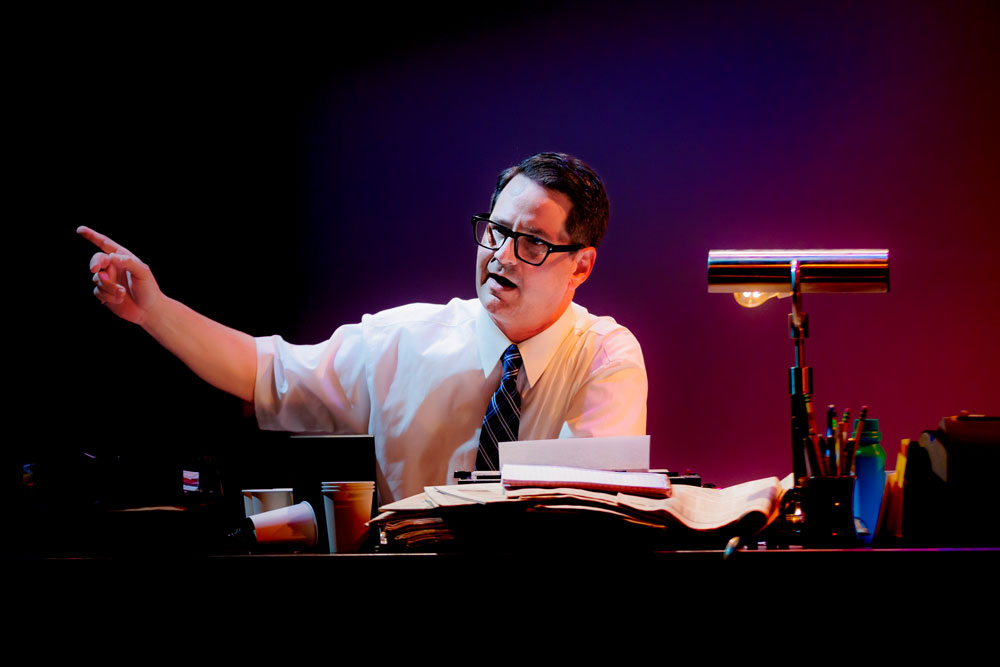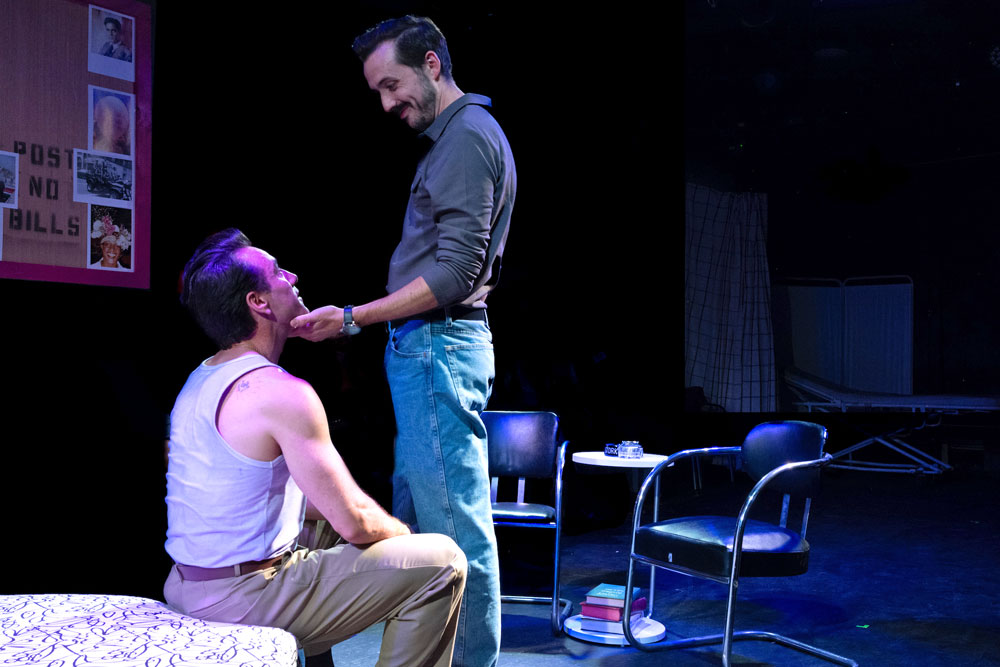
Tolstoy had it right. Happy families are all the same but every unhappy family has its own special brand of sad. He didn’t mention the broad middle ground. That space where families skew one way or the other but can’t truly be called either happy or unhappy. Because of their unpredictability, these are the families that can’t help but fascinate because you never know which way they’ll tilt when adversity strikes. Will they stick together or will they crumble?
If I Forget, closing soon at Victory Gardens, scrutinizes one of those families by exposing its strengths as well as its weaknesses during crisis. Something about it reminds you of Arthur Miller and his ability to tell a story plainly and beautifully so that you had a genuine sense of the souls inside the characters. Always told in a straight line with tension building elegantly and dramatically to the inevitable climax, the only question left to be answered is what side of the moral divide will they fall.
Here individual commitment to conviction dictate behavior and we see strong wills rubbing against one another like tectonic plates. Concentrating its focus on three siblings, two sisters and a brother, we watch as necessity leads them down a road that could end in family fracture.

Their Jewishness plays as central a role as any character. For the brother and one of his sisters, it defined how they see and relate to the world. The radical difference in how Michael (Daniel Cantor) and his sister Sharon (Elizabeth Ledo) view the relevance of their heritage determined how the action of the play would progress. One rabid about leading a completely secular life governed by the pursuits of the mind and moral integrity. The other, devout and steeped in her culture, has no qualms in letting her Jewish identity direct her responses politically and socially.
An academic teaching university level Judaic studies and on the threshold of tenure, things appear to be looking good for Michael. He’s also close to publishing a book grounded in his field of study. This is where ominous clouds begin to gather. Flying in the face of convention thought, he suggests Jews cleave too blindly to the tragedy of the Holocaust and should, in essence, forget it. In the book who flies in the face of convention and declares Jews but also ominously threatening because of its stance on contemporary Jewish thought relating to the Holocaust. It’s precisely the kind of progressive thought that translates to intellectual blasphemy.

Still craving the approval of his father; he allows himself to become agitated with worry because it’s been six months and his father hasn’t told him what he thinks about the book’s manuscript. Leaked by his sister Sharon to influential clergy and academics, the book initially undermines and then derails his professional career. Eventually his need for money exposes ruinous secrets in the home of his other sister and blows away the veil of the Sharon’s clandestine and compromising love affair. Will they cash in on the family’s sole financial legacy; property in a fast gentrifying New York neighborhood, to restore their own fiscal security but leave the next generation exposed.
Even as they play one against the other and, when pushed, can talk to one another with enough venom to drop a rhinoceros, you admire their resiliency and determination to never forget the closeness of their blood tie. The prowess of Gail Shapiro as Holly as well as that of Cantor and Ledo sparkled and filled their performances with authenticity. But it was Heather Townsend as Michael’s wife Ellen who brought compassion to the dance. Very Norwegian and not Jewish, she seemed inured at the quiet slights that reminded her of her outsider status. Both she and her husband had the additional burden of caring for a daughter whose confusion about self was resulting in functional inertia. Drawn to her Jewish roots and raised to live a secular existence, she was becoming incapable of coping with the world at all.

Surprisingly, If I Forget raised a uniquely nagging question haunting the leftist sensibilities of some. There’s a rage in Michael that in part stems from the direction the larger Jewish community took after the age of activism that started with Eugene Debs and ran through the civil rights era. A time when the Jewish left was at the forefront of the union movement and the struggle for equal rights. That fire igniting protests and demanding justice has largely been quelled by success; causing the term “red diaper babies” to age out of the lexicon. According to Michael, “Jews have become white people”. Although spoken with anger, you can still hear the regret sitting at the declaration’s core.
Families don’t always fall in just one of two camps as Tolstoy’s assertion implies. The wide gray area between happy and unhappy is a landscape full of stories about families trying to keep themselves united. If I Forget reminds you of the cost.
If I Forget
Victory Gardens Theater
2433 N. Lincoln Ave.
Chicago, IL 60614
773-871-3000

![PrideArts [title of show] Raining Gold](https://rowgseat1.com/wp-content/uploads/2024/09/a53939222075_ceaf585bae_k.jpg)
